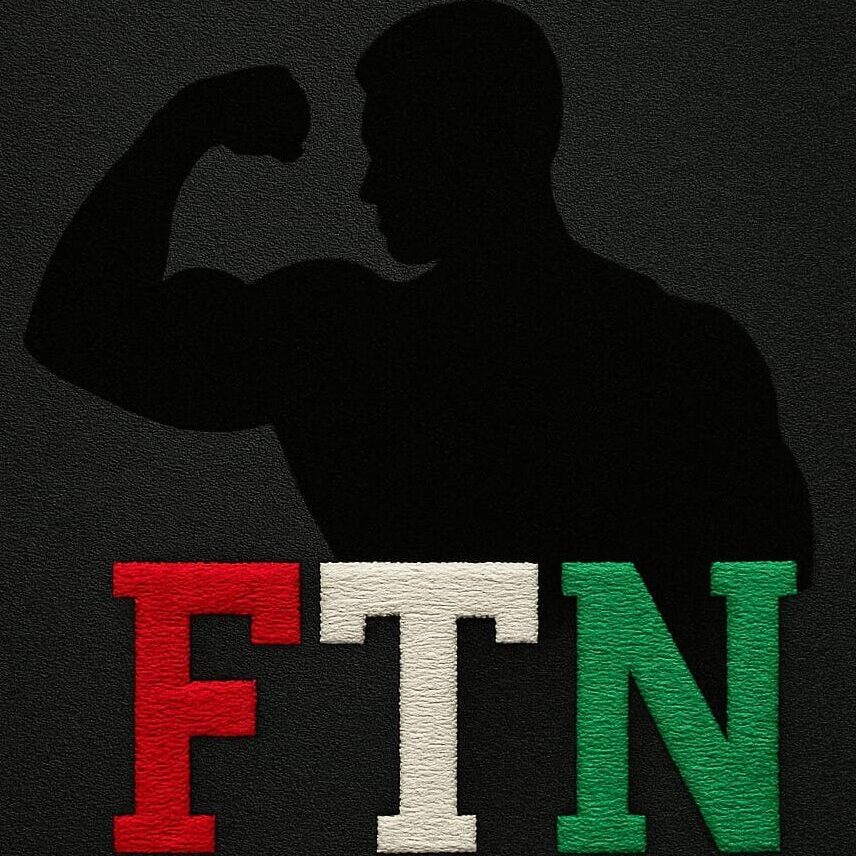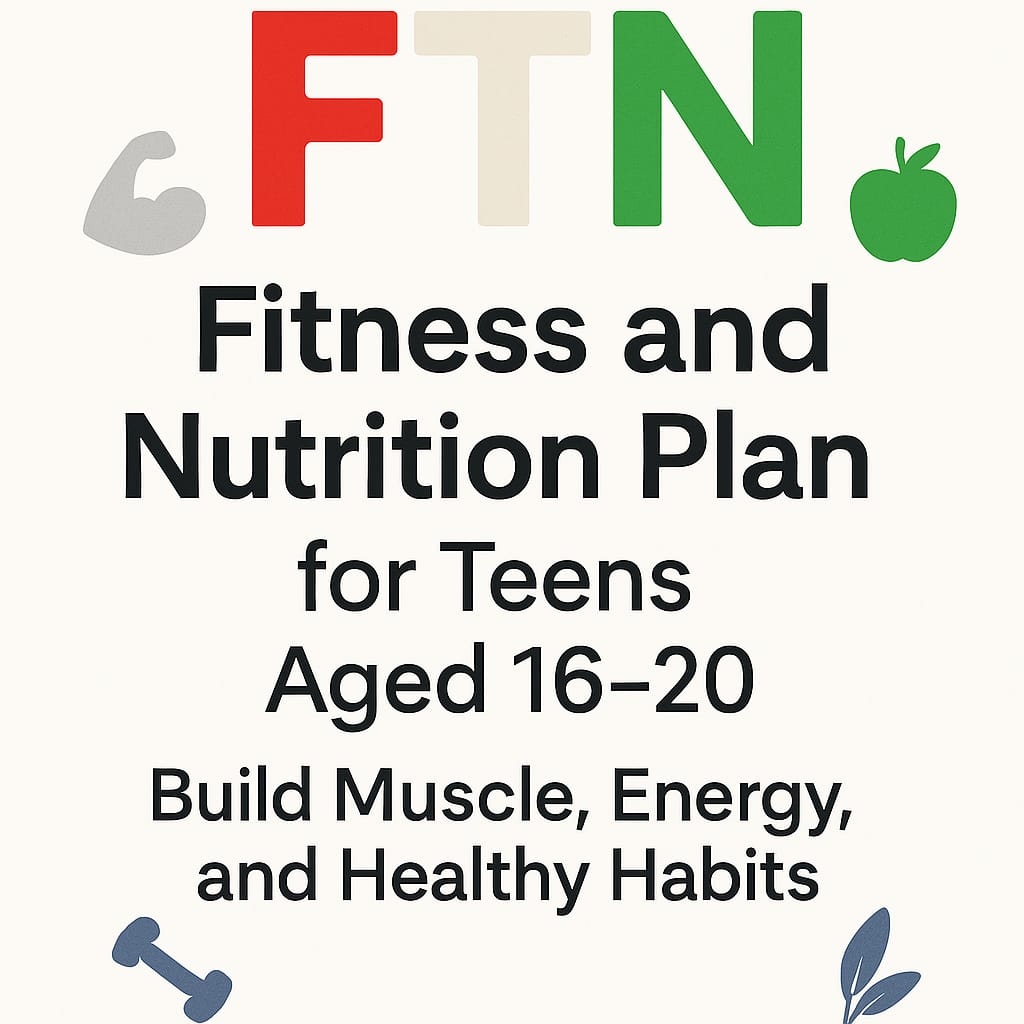Introduction to Teen Fitness and Nutrition 💪🥗
Ages 16 to 20 are some of the most important years in a person’s life. Teenagers go through rapid physical, emotional, and mental changes during this time, which makes it a perfect opportunity to build strong habits around fitness and nutrition. These habits not only help teens feel better today but also set the stage for a healthier future.
Understanding how to stay active and eat right is essential for teenagers who want to feel energetic, build muscle, and stay mentally sharp. When teens start making smart health choices early on, they’re more likely to stick with them as they grow older.
Why Fitness Matters for Teens 🏃♂️🏀
Teenagers need regular physical activity to support their growing bodies. Exercise helps with muscle development, heart health, coordination, and balance. It also plays a major role in maintaining a healthy weight and reducing the risk of diseases like diabetes and high blood pressure later in life.
But fitness isn’t just about looking good. It also boosts mental health. Physical activity releases endorphins—those feel-good hormones that reduce stress, anxiety, and even symptoms of depression. Whether it’s playing basketball, dancing, swimming, or doing home workouts, staying active can improve mood, confidence, and focus.
Experts recommend that teens aim for at least 60 minutes of moderate to vigorous physical activity every day, including a mix of cardio (like running or biking), strength training (like push-ups or weightlifting), and flexibility exercises (like stretching or yoga).
The Power of Good Nutrition for Teens 🥦🍗
What teens eat plays a big role in how they feel, grow, and perform—both physically and mentally. Teen years are a time of high energy demand, which means the body needs plenty of nutrients to support growth and development.
A balanced diet should include:
Proteins – Found in meat, eggs, beans, and nuts, these help build and repair muscles.
Carbohydrates – Found in fruits, vegetables, whole grains, and dairy, carbs provide energy for workouts and daily activities.
Healthy fats – From avocados, nuts, seeds, and olive oil, good fats help with brain development and hormone production.
Vitamins and minerals – Found in colorful fruits and vegetables, they support everything from immunity to bone health.
Skipping meals, eating too much junk food, or following extreme diets can harm growth and energy levels. Teens should focus on eating whole, nutrient-rich foods and drinking plenty of water.
Building Muscle and Boosting Energy the Right Way 🏋️♀️🔥
Many teens want to build muscle or have more energy throughout the day—but how can they do that safely and effectively
Strength Training:
Teenagers can safely engage in strength training by focusing on bodyweight exercises like push-ups, planks, and squats. As they build strength, they can add resistance bands or light weights. Training two to three times a week with proper rest in between is ideal.
Cardio:
Activities like running, dancing, biking, or even brisk walking improve heart health and endurance. Doing 30 to 60 minutes of cardio most days of the week can improve stamina and help burn excess fat.
Nutrition Support:
Eating a balanced post-workout meal with protein and carbs (like grilled chicken with brown rice and veggies) can speed up muscle recovery and keep energy levels high. Drinking enough water is also crucial—especially before, during, and after exercise.
Healthy Snacks for Active Teens 🍎🥜
Snacks aren’t bad—as long as they’re healthy! Teenagers often need snacks between meals, especially if they’re active. Here are some great options:
Greek yogurt with fruit – High in protein and calcium.
Apple slices with peanut butter – A mix of fiber and healthy fats.
Trail mix – A portable mix of nuts, seeds, and dried fruit.
Smoothies – Blend banana, milk, spinach, and protein powder for a quick boost.
Whole-grain toast with avocado – Healthy fats and fiber for energy.
These snacks are easy to pack for school, the gym, or after practice, and they help keep teens fueled throughout the day.
The Importance of Rest and Recovery 😴🧘♂️
Sleep is just as important as exercise and diet—especially for teens. During sleep, the body repairs muscles and releases hormones that support growth. Lack of sleep can lead to low energy, mood swings, poor concentration, and slower recovery after workouts.
Teenagers should aim for 8 to 10 hours of sleep per night. Developing good sleep habits—like going to bed and waking up at the same time every day—can greatly improve physical performance and mental clarity.
Rest days from exercise are also essential. Overtraining can cause injuries and burnout, so teens should listen to their bodies and include active rest days with light activities like walking or stretching.
Staying on Track with Healthy Habits 📆✅
Staying healthy isn’t just about what teens do once or twice a week—it’s about creating long-lasting habits. Here’s how teens can stay on track:
Set small, realistic goals – For example, “I’ll go for a 20-minute walk after school three times a week.”
Track progress – Keeping a fitness journal or using apps can help stay motivated.
Find support – Joining a school sports team, workout class, or even exercising with friends can make fitness fun and social.
Don’t aim for perfection – Everyone has off days. The key is to stay consistent and not give up after one unhealthy meal or skipped workout.
Building healthy habits takes time, but the effort pays off in energy, strength, and confidence.
Handling Peer Pressure and Social Life 🍕👥
Teen life often includes parties, hangouts, and fast food. It’s okay to enjoy these moments—but balance is key. Teens can prepare by eating a healthy meal beforehand, choosing better options when dining out (like grilled instead of fried), and bringing water or healthy snacks to group outings.
Talking to friends about fitness and health goals can also reduce pressure and create support. Many teens find motivation in working out with friends or cooking healthy meals together.
Conclusion: The Road to Lifelong Health Starts Now 🌱
Fitness and nutrition aren’t just adult responsibilities—they’re essential for teens too. Ages 16 to 20 are full of changes and growth, making it the perfect time to build strong foundations in physical activity and healthy eating. With the right habits, teens can:
Build lean muscle
Boost energy levels
Improve mental focus
Strengthen immunity
Reduce stress and anxiety
Whether you’re just starting or already on your fitness journey, the most important step is consistency. Make choices today that your future self will thank you for. 💪🥦🧠
🧠 My Personal Insight on the Video:
As a fitness educator, I found this video by Children’s Hospital Colorado particularly valuable for teens starting their health journey. The structured breakdown of nutrition—from the base of the food pyramid to smart snacking—delivers practical, science-based advice in a way that’s easy to follow.
What stands out is the video’s balance between simplicity and credibility. It avoids overwhelming the viewer, while still emphasizing essential points like fueling before and after exercise—something I also stress in my fitness plans for teens.
However, I believe the video could be improved with a short segment on hydration and sleep, since both play a major role in muscle recovery and energy for young athletes. Including that would make it a more complete wellness resource.
Overall, I highly recommend this video as a trusted companion to this article, especially for teens and their parents looking for guidance rooted in real-world sports nutrition

